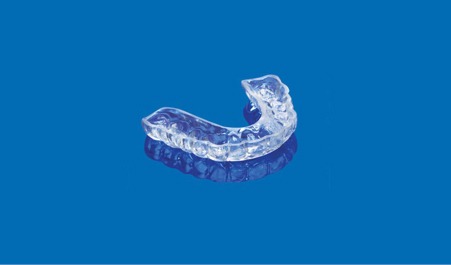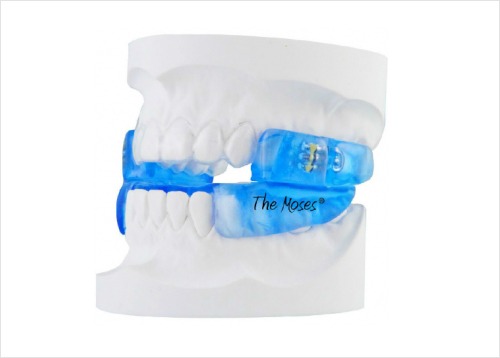If you frequently wake up with a sore jaw, a dull headache or tooth pain, you may want to ask a qualified dental professional if you are suffering from a condition called bruxism. Bruxism, or teeth grinding, affects about 10 to 15 percent of adults.
Night guards are available through your dentist. Guards of this type tend to be of a higher quality and superior fit, as they are made in a special laboratory from an impression of your mouth carefully taken by a dental professional. This is generally a more expensive device than one purchased over-the-counter, but can be more comfortable to wear.
Regardless of where a night guard is purchased, its main function is to prevent the surfaces of your teeth from grinding together, causing you to chip and crack your teeth and strain your jaw muscles.

Just about everyone snores occasionally, and it’s usually not something to worry about. Snoring happens when you can’t move air freely through your nose and throat during sleep. This makes the surrounding tissues vibrate, which produces the familiar snoring sound. People who snore often have too much throat and nasal tissue or “floppy” tissue that is more prone to vibrate. The position of your tongue can also get in the way of smooth breathing.
If you regularly snore at night it can disrupt the quality of your sleep—leading to daytime fatigue, irritability, and increased health problems. And if your snoring keeps your partner awake, it can create major relationship problems too. Thankfully, sleeping in separate bedrooms isn’t the only remedy for snoring. There are many effective solutions that can help both you and your partner sleep better at night and overcome the relationship problems caused when one person snores.
Since people snore for different reasons, it’s important to understand the causes behind your snoring. Once you understand why you snore, you can find the right solutions to a quieter, deeper sleep—for both you and your partner.
As you reach middle age and beyond, your throat becomes narrower, and the muscle tone in your throat decreases. While you can’t do anything about growing older, lifestyle changes, new bedtime routines, and throat exercises can all help to prevent snoring.
Fatty tissue and poor muscle tone contribute to snoring. Even if you’re not overweight in general, carrying excess weight just around your neck or throat can cause snoring. Exercising and losing weight can sometimes be all it takes to end your snoring.
Men have narrower air passages than women and are more likely to snore. A narrow throat, a cleft palate, enlarged adenoids, and other physical attributes that contribute to snoring are often hereditary. Again, while you have no control over your build or gender, you can control your snoring with the right lifestyle changes, bedtime routines, and throat exercises.
Blocked airways or a stuffy nose make inhalation difficult and create a vacuum in the throat, leading to snoring.
Alcohol intake, smoking, and certain medications, such as tranquilizers like lorazepam (Ativan) and diazepam (Valium) can increase muscle relaxation leading to more snoring.
Sleeping flat on your back causes the flesh of your throat to relax and block the airway. Changing your sleep position can help.
“When you sleep, the back of your throat relaxes. That narrows your airway and, as you’re breathing in, it causes it to vibrate. So, many anti-snoring products are aimed at opening up that airway, or the tunnels that lead to it.
“Sleeping on your back makes your tongue block your airway a little, sort of like the skinny part of a balloon, when you let air out of it. So some devices combine straps and pillows that make sleeping on your back uncomfortable — or poke you if you roll over.
And snoring that routinely disturbs your partner could be a sign you should see a doctor. You might have sleep apnea, a disorder characterized by loud snoring and interrupted breathing. People with untreated apnea are at greater risk for high blood pressure, heart disease and stroke.

- No Gap (For Private Dental Health Insurance Patients)
- Not With Health Fund, Just pay $179
Shop 3, Ground Floor, 101-107 Oxford
street, Bondi Junction NSW 2022
Phone: 02 9387 3181
Fax: +61 93877570
Email: bondi@dentallifeline.com.au
178 Mann street Gosford 2250.
Phone: 02 4323 7007
Fax: +61 4323 7009
Email: gosford@dentallifeline.com.au
Shop 3/135 Pacific Highway Hornsby
Phone: 02 9476 0070
Email: hornsby@dentallifeline.com.au
106 Victoria Street, East Maitland.
Opening Soon…
Copyright © 2024 Dental Lifeline | All Rights Reserved.